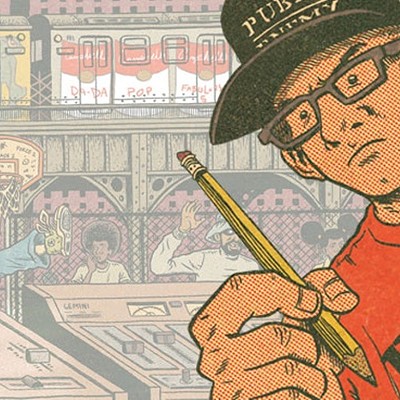There are some idiosyncratic filmmakers you want to figure out, and there are some that you don't. Then there's Jean-Pierre Jeunet, the oft-acclaimed French director who plays at idiosyncrasies, but who's really just a fabulist with the imagination of a precocious child.
Jeunet's freakish Delicatessen was impenetrable. His visually dazzling City of Lost Children has become a cult favorite, and his breakthrough hit Amélie charmed wide audiences. A Very Long Engagement is less of the same but not much more of anything else. I could compare it to other, better World War I movies, like Gallipoli or Paths of Glory, but what would be the point? Jeunet didn't want to make those kinds of movies, and so he made another kind.
A Very Long Engagement revolves around the immutable love between the indomitable Mathilde (Audrey Tautou of Amélie) and the gentle Manech (Gaspard Ulliel). They're childhood friends, teen-age lovers, and engaged to be married when Manech goes off to war. He tries his best to become a killer. But after he witnesses one too many horrors, he shoots himself through the hand, hoping that his injury will send him home.
The plan doesn't work. Instead, Manech and four others who try the same ploy get court-martialed and sentenced to death. Their sadistic commander, rather than waste bullets on cowards, thrusts them into No Man's Land between the French and German trenches, figuring the Jerrys will take care of business. What happens next to the five men is what Mathilde, after the war, spends a very long movie trying to find out: In the fashion of Rashomon or Citizen Kane, she traverses the countryside looking for witnesses who can lead her, step by hobbled step (she had polio as a child), to the truth.
Along the way, Jeunet sketches some gorgeous sepia-toned vignettes of French country life, like the irritating mailman who skids his bike in the sand, or the wary, weary, grief-stricken widow (Jodie Foster, in a two-scene cameo) who has useful information for Mathilde. With the help of computer imagery, Jeunet re-creates the past lushly -- a moment at the foot of the Eiffel Tower, with Paris bustling in the background, is especially handsome -- and of course, the brutality of war is no less grisly even in a movie as trivial as this one.
But you'll have to try awfully hard to care about Jeunet's rambling fairy tale. Mathilde often plays a childhood game of chance with herself to presage a happy ending: "If I can count to seven before the train enters the tunnel," she'll say, "then Manech is still alive." It's a nice character touch that also reminds us of Jeunet's interest in the theme of innocence lost and found. But touches aren't enough to carry a movie, and the Jeunet touch leaves me cold. In French, with subtitles. 













